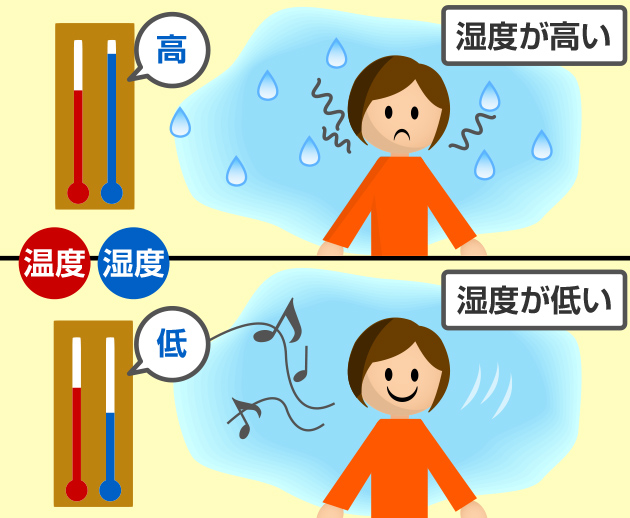I'm using materials I found on the Internet to learn grammar points. This source includes examples, which is really nice, but I reckon there are many mistakes - mostly typos, but sometimes worse. What worries me the most is whether or not these sentences 1. are actually grammatically correct, and 2. sound natural for native speakers.
I came across the following sentence:
私が疲れるのは、暑さというよりはむしろ湿度のせいだ。
The translation is (re-translated from French, sorry if the English is not perfect either):
Rather than heat, it's more because of humidity that I'm tired.
The reason why I'm asking this question is the use of 湿度 to mean "humidity". To my understanding, it means "the humidity level", as in "90%", just like 温度 would be used to refer to the actual value in degrees. Is it acceptable to use it in this case, where I understand "humidity" as a more general concept than just a figure? Wouldn't 湿気 be more suited?
Also, the grammar point this example accompanies is "というより". Is it natural for a native speaker to use this construct in this context?
And more generally speaking, does this sentence sound natural? For instance, could one say "疲れているのは" to insist on the fact that they're tired at this particulat time?
Source, in French but for completeness: http://jlptgo.com/grammaire/187-japonais-to-iu-yori

